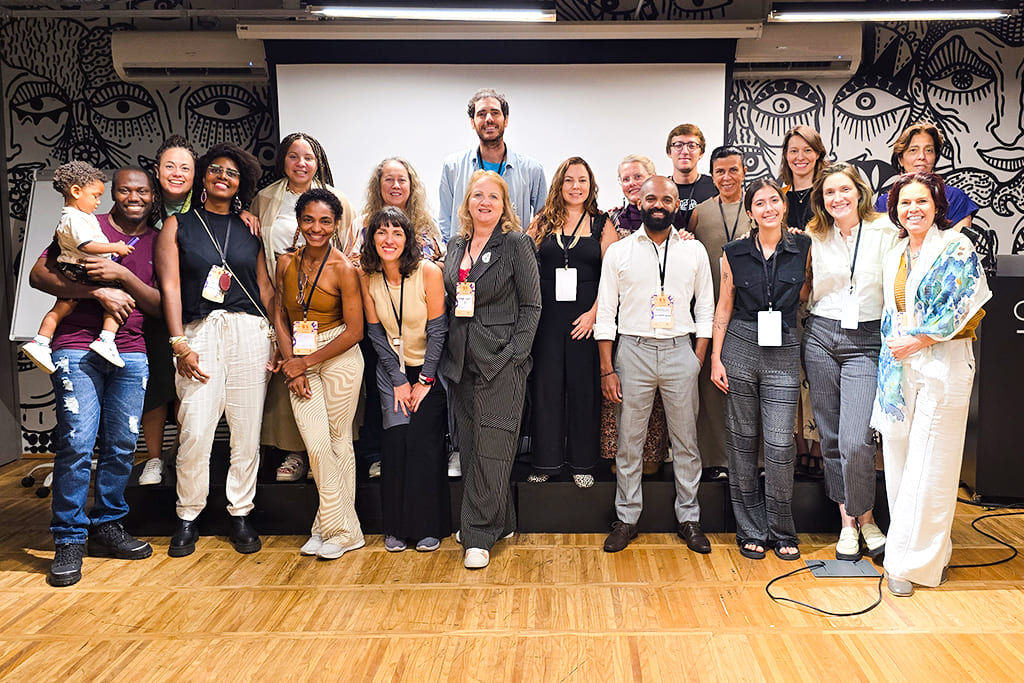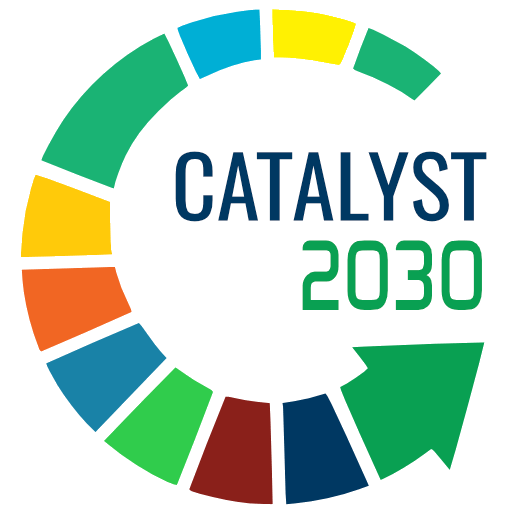
The Folha Network of Social and Environmental Entrepreneurs is a community comprised of finalists and winners of the Social Entrepreneur Award promoted by Folha de Sao Paulo. Over the last two decades, 173 initiatives have been recognized, including finalists and winners, since the first edition of the Social Entrepreneur Prize back in 2005.
Raízes was a finalist in 2012. In this 2024 edition of the meeting, it co-organized this program in São Paulo alongside Diáspora Black, another social business finalist in 2022, and a partner of Raízes. It was the second year that we took on this endeavor together, and in 2023 we held a meeting of members inside a prison at the APAC in São João Del Rey – and we told you about it here.
With the mission of celebrating 20 years of stories that transform lives and territories, the event had an intense program, focused on dialogues, connections, and exchanges of experiences between winners and finalists of the award in previous years and this year. Instead of a traditional auditorium setting, we adopted conversation circles with empty chairs (an adapted Aquarian technique), allowing any participant to feel free to join in the discussions and share their vision.
The event took place on November 11 and 12 in symbolic spaces for the socio-environmental innovation ecosystem, such as Google Campus and Civi.Co, as well as with key partners from the Network. Diáspora Black, responsible for logistics and organization, led an immersive tour of the Liberdade district on the first day, offering an experience of cultural exchange and reconnection with the Afro-Brazilian history present in the heart of São Paulo. Edson Leite, from Gastronomia Periférica, brought the strength and flavor of the periphery to the group’s meals, with a menu that reflected the richness and diversity of local knowledge.
A program full of connections and socio-environmental learning
On the first day of the meeting, the round table discussion on collaborative practices generated debates on how institutions with apparently different agendas can create synergies and join forces. Under the mediation of important names, such as Gisela Solymos (Centro de Recuperação e Educação Nutricional (CREN)/Catalyst), Tati Monteiro (União BR) and Valdeci Antônio (FBAC), the group explored the challenges and opportunities of connecting around common goals.
In the afternoon, one of the highlights was the discussion on the use of artificial intelligence and emerging technologies for socio-environmental impact businesses. Experts such as Monica Pasqualin (Catalyst), Rodrigo Baggio (Recode), and Sanket, from Diaspora Black, highlighted their experiences and the importance of technology being at the service of social inclusion and cultural preservation.
The second day of the meeting, held in the Civi.co auditorium, began with a relaxed chat over coffee and a welcome. Afterwards, the challenges of fundraising were the subject of debate with representatives of important organizations, such as Nina Valentini (Arredondar), Daniel Morais (Atados) and Aline Odara (Fundo Agbara).
One of Aline Odara’s speeches was reflected on and applauded during the discussion. According to the executive director of the Agbara Fund: “There is an issue that I see and that I have been provoking the field to think about, which is that Private Social Investment (PSI) and philanthropy in Brazil takes place in a dynamic that has a vestige of the Portuguese colonial heritage: the personal favoritism thing. During a recent agenda in New York, I met a diversity director from a large global company and, while I was presenting Agbara’s work, she was interrupted and then said to me: ‘Aline, first I want to meet you, be your friend, then find out about your work’. This comment exposes something that often happens: trust and investment are directed towards those who are close, those who share the same background or social circle.
I don’t want to be friends. I want my work, which is excellent, to be recognized. That’s what I want! A work that has already impacted more than 4,000 women in Brazil, that is articulated on several fronts and that has international recognition and action. We must confront these patterns of relationships and question who has access to these opportunities and decisions. Who am I favoring? You look more closely, and it’s the guy you went to school with, the college buddy, the beach tennis guy. We need to work on this colonial remnant. This is the biggest challenge for me in looking after resources”.
The panel that addressed mental health and eco-anxiety, an especially important issue for those working in the socio-environmental field, had a strong turnout, where Marianne Costa (Vivejar), Erika Foureaux (Noisinho da Silva), and Alice Freitas (Rede Asta) offered insights into the importance of self-care.
With an atmosphere of enthusiasm and genuine connection, the meeting of the Folha Network of Socio-Environmental Entrepreneurs reaffirmed the value of collaboration and exchange between initiatives that, although diverse, share the purpose of building a fairer and more sustainable world. Each round of conversation, each informal exchange, and each shared meal strengthened ties and opened doors to new partnerships.
The event ended on a high note at the Folha Social Entrepreneurship Awards at the Municipal Theater in São Paulo, where all the Network participants gathered to celebrate the social impact we have built together. Looking to the future, we remain inspired and stronger to continue promoting transformation, connecting people, and creating socio-environmental opportunities that transform lives and communities wherever we go.

